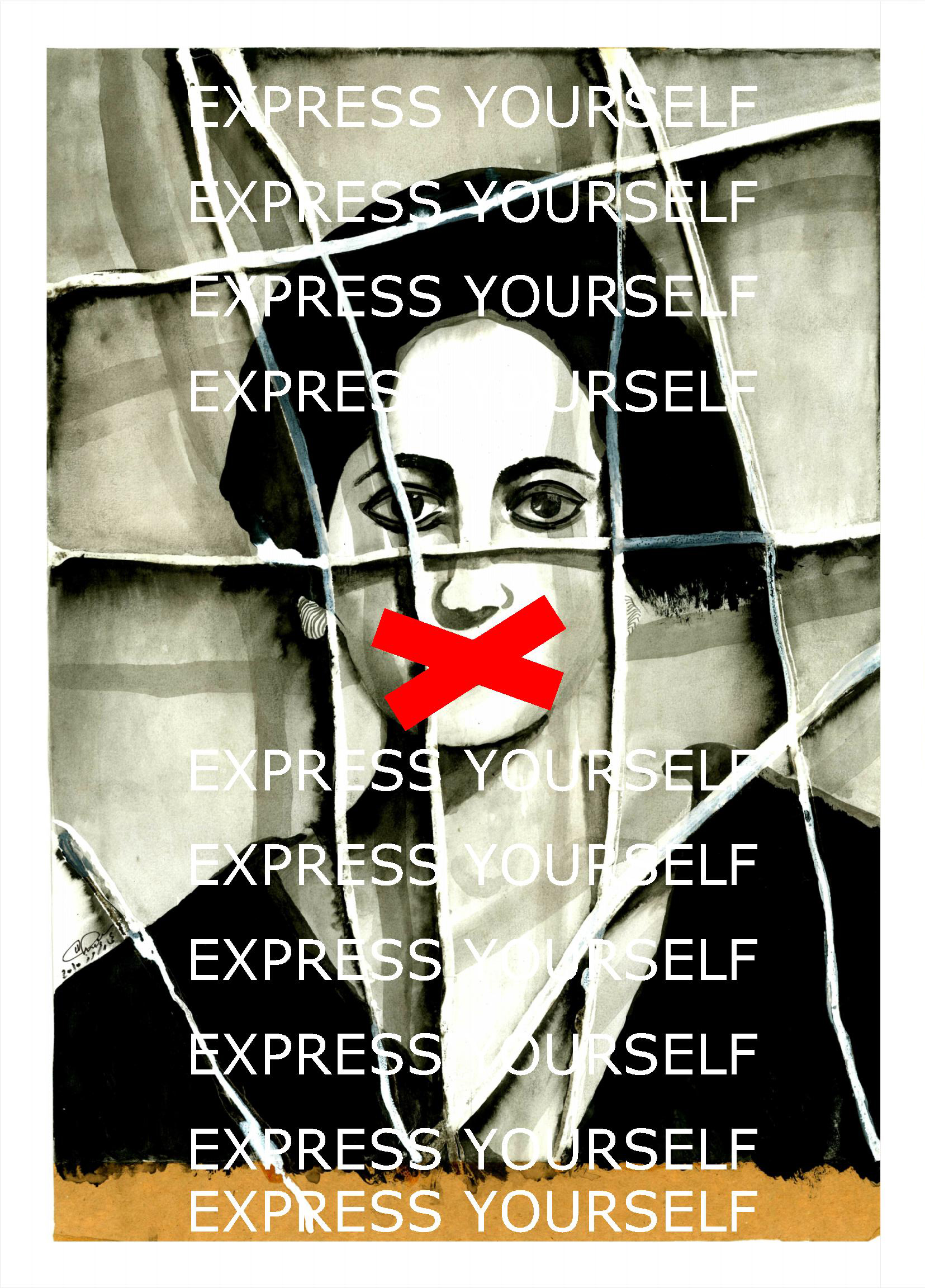On silencing academic voices
By: Ammar Azzouz

From killing, violence and disappearance, to loss of positions, travel restrictions and forced displacement, scholars across the world are under attacks (Abbott 2019). These attacks are targeted towards scholars for a wide range of reasons that include their political opinions, participation in anti-governments peaceful protests, for their research, writings, activism and for speaking out on themes that do not align with those in power, as well as attacks on racial minorities and members of the LGBTQ community.
Repressive state and or non-state actors target scholars, scientists and students to silence their voices and destroy their right to express their opinions freely. At times when these intellectuals’ voices are needed to defend human rights, social justice and freedoms, scholars’ lives are targeted to limit, control and crush their influences and activities, compromising the higher education system. The threat to these scholars, is not only about the individual loss and struggle but also the wider impact on society through the loss of academic freedoms and turning universities into sites of oppression, silence and fear with limited human rights and freedoms of expressions.
As a response to the threats against individual scholars and the attacks on academic and educational institutions, several bodies and networks have emerged to support endangered scholars and displaced students to rebuild their own lives and to raise awareness on the struggle of scholars across the world. Amongst these bodies is the Scholars At Risk Network (SAR) which began in 1999 to defend and protect scholars and promote their freedoms. In 2012, SAR launched its Academic Freedom Monitoring Project, which monitors some of the attacks on higher education in specific countries. In their Free to Think report (2019), SAR analyses 324 attacks on higher education in 56 countries between September 2018 and August 2019. This includes countries as China, Sri Lanka, Sudan, Yemen, Afghanistan, Turkey, India, Brazil, Chile and Venezuela. The report shows how state authorities around the world use prosecutions, detentions and other legal measures to punish and restrict hundreds of scholars’ and students’ teaching, research and expressions; and how such attacks erode academic freedom across entire university communities and limit everyone’s freedom to think and ask questions.
As forcibly displaced scholars search for home in their host countries, new challenges arise to re-establish their careers and to carry on with their scholarly work. Language barriers, financial difficulties and lack of research and working opportunities all contribute to many scholars and students being forced to change their career focus. However, organisations such as the Council for At-Risk Academics (Cara), whose mandate to support persecuted and at-risk academics dates back to 1933, provide pragmatic support. Through its core Fellowship Programme, Cara offers periods of sanctuary in the form of doctoral and post-doctoral placements in partnership with the 121 UK universities that make up the Cara Scholars at Risk UK Universities Network. Through its country programmes it reaches out to those who have sought safety in neighbouring countries in their region, sustaining academic identities by facilitating continued academic development, professional connection and contribution whilst in exile, in the hope of eventual return given the vital contribution each has to make in the rebuilding of home countries. Over the decades, thousands of academics from around the world, and their families, have benefited from Cara’s support, as and when events have placed them in the firing line.
But the scale of the problem challenges the capacity of these initiatives to reach to wider scholars at risk. As part of my research on the destruction of home in Syria (Azzouz 2019; 2020; Azzouz and Humphry 2019), I interviewed a lecturer in architecture who fled Homs, Syria, for Istanbul, Turkey in June 2020. He explained how he struggles to access academic opportunities in his host country and is unaware of any of the organisations that support academics at risk. The reason he had to leave Syria was because he was teaching at Al-Baath University, Homs, and his colleagues and or students repeatedly reported him for his sympathetic opinions and involvement in the Syrian Revolution. He thus decided to leave the dangers of persecution for Lebanon in 2013, but when arriving at the Syrian Lebanese border, he was not allowed to leave the country and was asked to visit the Syrian Security Intelligence. Later in the same year he did find a way to to be smuggled to Turkey. “The department turned into a prison”, he added. He has been one of the most well-known and successful lecturers, yet his life became under threat due to the reports of his colleagues or students.
CITY is developing support for scholars at risk, through featuring the struggles of academics and students across the world, and by providing a platform to bring their voices to the academic institutions in the UK and beyond in their journal and on their website. We are currently working with CARA to integrate with their networks of collaboration with scholars at risk and are planning a panel event for later this year to promote awareness amongst scholars-at-risk of the services and support available.

References
Abbott, A. 2019. Attacks on scholars worldwide raise concern. Nature. 21 November 2019.
https://www.nature.com/articles/d41586-019-03582-5
Azzouz, A., 2019. A tale of a Syrian city at war: Destruction, resilience and memory in Homs. City, 23(1), pp.107-122.
Azzouz, A., 2020. 2011: Reflections on a ruined homeland. City, 24(1-2) pp.1-17.
Azzouz, A and D, Humphry. 2019. Memory and the Everyday in Homs, Syria. City: Analysis of Urban Change, Theory, Action Website. June 2019.
http://www.cityjournal.online/2019/06/11/memory-and-the-everyday-in-homs-syria/
al-Haj Saleh, Y. The impossible revolution: Making sense of the Syrian tragedy. Hurst Publishers, 2017.Scholars at Risk. 2019. Free to Think. Report of the Scholars at Risk Academic Freedom Monitoring Project. Scholars at Risk Network. November 2019. https://www.scholarsatrisk.org/wp-content/uploads/2020/01/Scholars-at-Risk-Free-to-Think-2019.pdf
Support and campaign organisations
Scholars at Risk Network.. https://www.scholarsatrisk.org/about/
Council for At-Risk Academics (CARA)
Acknowledgements
I would like to thank Dr. Debbie Humphry for her valuable editorial support , constructive feedback and directions on this piece.
Ammar Azzouz, an architect and an Honorary Research Associate at the School of Geography and the environment, University of Oxford.
Posted July 7, 2020.





